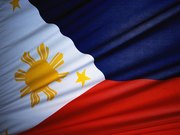Manila – The Philippines continued to improve its competitiveness on the global stage amid reforms that have allowed the country to gain some ground against its better-placed neighbors.
Results of the World Economic Forum’s (WEF) Global Competitiveness Report for 2014 to 2015 showed the Philippines climbed seven places to 52nd out of 140 countries in the world. Since 2010, the country has climbed 33 spots, making it among the biggest gainers among the nations surveyed.
WEF’s flagship publication ranks countries based on 12 pillars that look at areas such as government efficiency and infrastructure.
“The results suggest that the reforms of the past four years have bolstered the country’s economic fundamentals. The trends across most of the 12 pillars are positive, and in some cases truly remarkable,” WEF said in its report, which will be published Wednesday, Sept. 3.
With its new rank, the Philippines has moved closer to the government’s goal of bringing the country inside the upper third of the list of countries.
Among major Southeast Asian economies, the Philippines was the biggest gainer this year. Malaysia gained four places, Thailand went up six, Indonesia climbed four while Vietnam was up by two.
Of the 12 criteria, the country posted strongest results in macroeconomic environment (26th), market size (35th) and business sophistication (46th).
The Philippines is the second-most populated country in Southeast Asia as well as the region’s fastest-growing economy.
Among major Southeast Asian economies, the Philippines was the biggest gainer this year. Malaysia gained four places, Thailand went up six, Indonesia climbed four while Vietnam was up by two.
Of the 12 criteria, the country posted strongest results in macroeconomic environment (26th), market size (35th) and business sophistication (46th).
The Philippines is the second-most populated country in Southeast Asia as well as the region’s fastest-growing economy.
Strong scores were also posted in financial market development (49th) and innovation (52nd). In terms of technological readiness, WEF ranked the Philippines at 69th. “The country is one of the best digitally connected developing Asian nations, close behind Malaysia (60th) and Thailand (65th),” WEF said.
The same cannot be said of infrastructure, however, which remained poor (91st).
In the institutions pillar (67th), the Philippines has leapfrogged some 50 places since 2010. In particular, there were signs that the efforts made against corruption have started bearing fruit. In terms of ethics and corruption, the country has moved from 135th in 2010 to 81st this year.
The recent success of the government in tackling some of the most pressing structural issues provided evidence that bold reforms could yield positive results relatively quickly. A similar pattern was observed in terms of government efficiency (69th) and the protection of property rights (63rd).
The Philippines’ weakest areas were the labor market, which suffers from rigidities and inefficiencies. The Philippines ranked a “mediocre” 91st in this dimension “and almost no progress has been made since 2010.”
Finally, security remained an issue (89th), in particular in terms of costs that the threat of terrorism imposes on businesses (110th). Source: Philippine Inquirer

